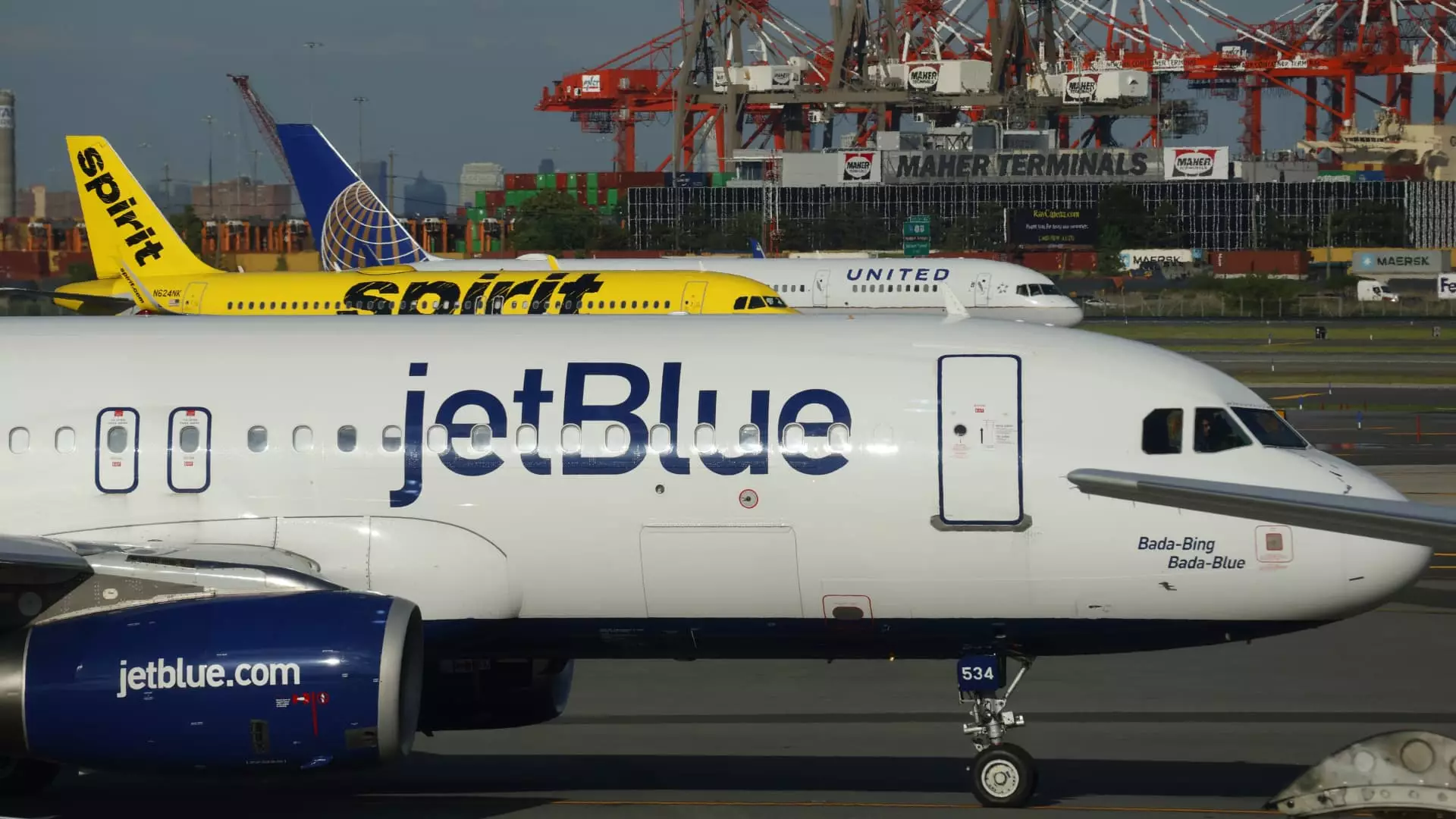The airline industry, once booming with new jet orders and expansion plans, is now facing a different reality. With cash-strapped, low-cost, and deep discounter airlines struggling to return to profitability, the focus has shifted from growth to cost-saving measures. The impact of engine repairs, combined with oversupply and reduced demand, has pushed airlines like Spirit Airlines, JetBlue Airways, and Frontier Airlines to rethink their strategies. Despite flooding the market with flights, driving down fares, and carrying more passengers, these airlines are experiencing revenue declines and losses. The deferral of new aircraft deliveries has become a crucial step in their efforts to stabilize financially.
Years of delays in aircraft deliveries have caused a backlog of orders, making airlines hesitant to add more planes too quickly. The deferred deliveries of Airbus aircraft by Frontier and JetBlue’s decision to push back the arrival of Airbus A321 airplanes demonstrate the industry’s cautious approach. The need to smooth out their order backlog and manage costs more efficiently has become a top priority for these carriers. This adjustment in growth plans reflects a shift towards sustainability and long-term viability rather than immediate expansion.
Aside from financial constraints, airlines are also grappling with grounded jets due to the Pratt & Whitney engine recall. The predicament of needing new planes for growth while facing operational challenges and financial burdens highlights the complexity of the situation. JetBlue’s CEO Joanna Geraghty’s acknowledgment of the “double-edged sword” nature of deferring aircraft deliveries underscores the delicate balance airlines must maintain. The additional strain of growing debt further complicates the decision-making process regarding fleet expansion.
Spirit Airlines’ recent loss and revenue decline, along with the decision to defer all Airbus plane orders until 2030, exemplify the need for strategic deferrals and restructuring. By renegotiating leases, cutting unprofitable routes, and adjusting growth plans, airlines are striving to navigate a challenging landscape. The sale-leaseback strategy employed by carriers like Frontier reflects a creative approach to generating cash flow amidst financial uncertainty. These cost-saving measures aim to improve efficiency, reduce losses, and enhance overall operational resilience.
The scarcity mindset prevalent in the aviation industry, coupled with ongoing supply chain constraints, is reshaping the market dynamics. Lease rates for new aircraft, especially Airbus A320s and Boeing 737 Max 8s, are reaching record highs due to limited availability and high demand. Boeing and Airbus’ struggles to increase output highlight the lingering impact of the post-Covid environment on production capacity. Despite unfilled orders and robust demand, airlines are facing pressure to optimize fleet decisions, mitigate cost pressures, and adapt to changing market conditions.
Executives’ statements about delayed fleet expansion plans and the need to mitigate overstaffing underscore the uncertainty and challenges faced by airlines. With Southwest Airlines offering voluntary leave programs and seeking opportunities to reduce costs, the industry’s landscape is evolving rapidly. The reluctance to disclose detailed fleet plans and the urgency to address cost pressures indicate a sense of urgency and adaptability among carriers. The focus on flexibility, resilience, and strategic decision-making will be crucial in navigating the turbulent waters of the airline industry.

